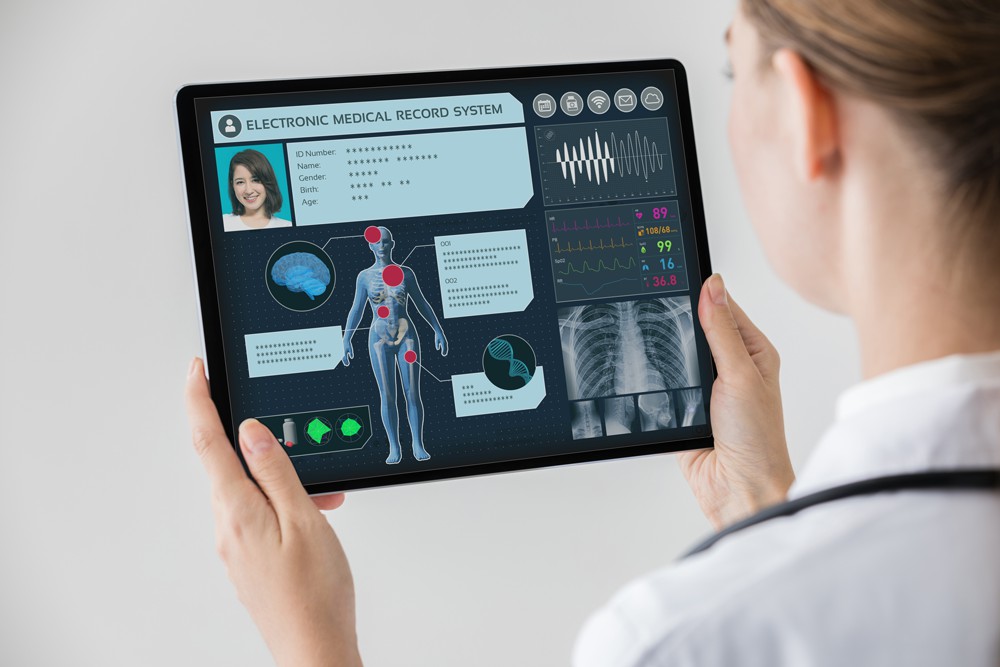
EHRs are an integrated approach for the management and exchange of patient information which allows for collaboration, productivity and safe provision across the healthcare continuum. It maintains records for everyone and can be updated and accessed from synced devices anytime. This enables data access and safety for patients. There are more benefits to EHRs than the problems that are highlighted. EHRs are generic for all specialties until vendors realized that for different medical practices, there should be distinct EHR templates that streamline workflows and reduces time and effort. EHR improved diagnostics and with enhanced patient outcomes and accuracy, patient satisfaction scores went up. Specialty-focused EHRs are popular and widely used across many practices and hospital settings.
Why do we need specialty-specific EHRs? Each medical specialty has its own uniqueness. An oncologist will have a specific EHR template that has distinct characteristics to cater to a cancer patient. This template cannot be used efficiently for mental health, neurology or gynecology. Such EHRs allow for separate templates and workflow settings which allows for faster documentation. Streamlining questions for patients, making charting simpler and using the information for clinical trials, reporting and research for cures mean that overall specialty-specific EHRs are needed. There are many specialties in medicine. While some overall, others are very distinct and the same EHRs cannot be used generically and produce optimum results. Why? Information overload, or not enough information, hampers decision making and the course of treatment that is ideal for a patient. This means a higher rate of readmissions, unnecessary time wasted in research (which should have been readily provided), and overall a lower revenue rate for the practice is likely.
Since the modern era is all about specialization, it only makes sense that medicine and caregiving should move with time. Since customizing EHRs for every doctor and practice is vendor specific, it seems that no two EHR functionalities perform alike. Sometimes a physician or user doesn’t even know the functions that can be performed within an EHR, or how to customize it for superior results. The second setback that specialty-focused EHRs overcame was that many doctors wanted to customize their EHR templates but never got the time to plan or execute the process. With a specialty-focused EHR, customization was less of a problem and each user learned to set requirements and expectations which enabled better practice performance.
Was there a need for specialty-specific EHRs?
Tools and functions
Specialty-specific EHR satisfaction scores differ with each practice. It is easier to design EHR templates for specialties like pediatrics or gynecology, in comparison to cancer (where exact dosages, chemotherapy infusions, and drugs administered need to be entered by chemo nurses). A mental health EHR template has more open-ended options than pediatrics which has a number of diagnostics pre-listed and only requires selection. The tools and functions for each specialty differ, and they are required to run a focused clinic with ease and complacency. That means that tools and functions are filtered through, which makes everyday use easy.
Having a generic EHR means extended training time required to learn all about the tools and functions offered by vendors. Generic EHRs cater to all specialties which means a long list of functions to learn. Also, the vendors or customer care representatives do not know enough about anyone specialty, let alone all, to fully appreciate and train the staff accordingly. Generic EHRs also means a more confused staff. When there are so many kinds of functions and tools, as well as extensive training where each function is explained, the staff can be confused, and this may lead to their burnout. It is the physician themselves who have to train their staff, and their time can be better spent curing patients.
Related Article: Features to look out for in an EHR
Specialty-specific EHRs allow for a more organized approach. Training does not take that long because many extra functions are not required. Specialty-specific tools are the main focus and this makes the EHR more relevant. The doctor and staff are already specialized in a certain specialty, and therefore, they will learn quickly. Staff will find specialty-specific EHR relevant and it will be less time consuming to enter-in patients. Doctors have found all specialty-focused EHRs to be smooth, and those who use both EHRs can notice the difference.
Time and Cost Effectiveness
Generic EHRs have a more widespread template which caters to a lot of specialties (and not fit for all despite being long and cumbersome). There are more questions, and fields to be filled, even though these can be simplified. Families’ histories, patients’ histories, and billing may be the same for all, and cannot be altered by a lot. However, medical tests, diagnostics, and images, only attaining specific information with regard to a condition and symptoms can be input easily. Using a generic EHR just means longer waiting time for patients and a longer line for patients that can make staff anxious. It exhausts patients too.
Does specialty EHR provide an alternative?
Specialty EHRs require less time for charting and admitting patients. There is usually just one page to fill, and there is no excessive information or room for unnecessary details. It takes the staff less time to get the paperwork in order, and all tests, scans, and x-rays can be obtained from one patient portal. Medical codes may be error-free since specialties do not need to know all codes; only the ones necessary. It is easier to treat the patients for specific ailments; as all information is in front of the physician or specialty doctor, Hence reducing time. The cost can be decreased through a number of ways. Indirect revenue generation or recovery is easy because the time it takes to see a patient, input data and treat a patient has now decreased. It also reduces overhead costs. Staff can be limited if there is a specialty-centric EHR in use. More patients can be seen in less time.
Read More: EHR Interoperability – Is it as difficult as it sounds?
More direct revenue is billing and insurance claims. Billing is less stressful in specialty-focused practices. The insurance claims are also streamlined via specialty. All cancer patients need insurance packages that cover for tests, chemo, and other drugs. Specialty billing is also important to reduce denied claims, rejection and inaccuracies caused by charting. More specific diagnostic codes, specialty-specific billing services, and fewer rejections mean faster payout. ObamaCare has a law that if a patient has acquired insurance after their ailment, the insurance has to cover the expenses of the patients[i] (HealthCare.gov). Such regulations also mean that doctors and practices are paid timely by insurance companies.
Does the Staff Benefit from Specialty-focused EHRs?
Specialized EHRs ensure less typing, easier to obtain patient information and has a cleaner, organized template with fewer tools and functions. With KIOSK and e-patient logins, admittance is easy for staff and patients. Less training time for staff means that they can begin to work immediately. The system is also user-friendly as a consequence. This allows for more break time, less burnout, and a friendly work environment where the staff can be more friendly and welcoming towards patients.
Understanding a specialty EHR is easy and requires less time and more skill. Therefore, it was easier to familiarize oneself with the template and navigating through the EHR also reduces time. If we add decision support to the mix, we not only have more accurate diagnoses but charting and documentation is a lot easier now. Chart notes are also easier to complete for staff members. With the option to obtain a specialty-focused EHR, the time it takes to customize an EHR is cut down by half.
Specialized Data Access helps healthcare employees provide better care. General EHR systems make it difficult to access information with ease or in time. It can be frustrating, and doctors and staff members are more likely to make mistakes if all information is not presented clearly and in time. Specialty-focused EHRs allow for all information to be accessed easily. The information will be right on their fingertips when they need it. Specialized reporting ensures short-term efficiency and accuracy, and measurable clinical outcomes.
A specialty-specific EHR allows for a more adaptable software that is easier to manage, less clustered and ensures better productivity; all benefiting staff/employees.
How does the Industry React to Specialty-specific EHRs?
KLAS Research states that electronic health records which are not tailor-made do not have space for all operations in a clinic or practice. They do not offer everyday task management, however, it became easy to incorporate all necessary workflows into an EHR. Doctors and vendors can work together to improve and augment the tasks performed by an EHR to reduce physician burnout.
The achievements of the EHR meaningful use would not have been possible without communication and feedback. EHR providers understood that they needed to rely on implementing their own expertise to customize EHRs for each specialty. They continued to learn from every client who customized the template so the practice could focus on caregiving. Similarly, physicians also continued to give their input and gave reviews which furthered EHR functions and implementation.
A dermatologist opening a clinic far from a mental health clinic also meant that patient access was also limited. Less waiting time, accurate diagnostics and specialized caregiving gave way to better healthcare provision and successful practice. EHR vendors picked up the trend, but they struggled and fell short in the beginning. However, as more information pooled in, competition arose, and technology progressed, the EHR industry grew to cater to more doctors, practices and even patients. Furthermore, an adaptive system also meant detail-oriented workflows that handled and accommodated for billing, image uploading, and calculated analysis. Flexibility to customize, and creating a more robust practice workflow means stronger market presence which can attract more patients (ultimately).
There are a few drawbacks to specialty-focused EHRs which include less interoperability (since there are specialized vendors for specialty EHRs too, such as IACNotes for Behavioral Health), more rigidity, and only specialized information. Despite these issues, many doctors, physicians and practices prefer specialty-specific EHRs. Patient satisfaction, physician satisfaction, finances and reimbursements, and other requirements of individual specialties means that all requirements of the stakeholders in the healthcare industry need to be weighed. Given the points in favor of specialty-specific EHRs, it is easier to streamline workflows and allow for a more proficient running of a clinic.
[i] https://www.healthcare.gov/health-care-law-protections/rights-and-protections/
The law “Requires insurance plans to cover people with pre-existing health conditions, including pregnancy, without charging more”




More Stories
The Future of Radiology Information System
How To Buy EHR Software in 6 Steps
Information security guide for small healthcare businesses